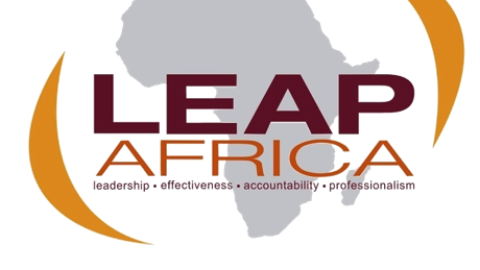 Last week, Mallam Bolaji Abdullahi’s tenure as Nigeria’s Minister for Youth Development came to an end. As predicted by watchers and talking heads, he chose the National Sports Commission as the Minister for Sports over the Youth Ministry. In the new found vocation, he will superintend over a ministry that he has made his mark which also boasts of a larger allocation as compared to his success in the perennially cash strapped Youth Development Ministry.
Last week, Mallam Bolaji Abdullahi’s tenure as Nigeria’s Minister for Youth Development came to an end. As predicted by watchers and talking heads, he chose the National Sports Commission as the Minister for Sports over the Youth Ministry. In the new found vocation, he will superintend over a ministry that he has made his mark which also boasts of a larger allocation as compared to his success in the perennially cash strapped Youth Development Ministry.
Mallam Abdulahhi arrived the Ministry of Youth development with an impressive resume. Abdullahis’s experience spans media, civil society and Government. He has worked with Thisday Newspapers, the Africa Leadership Forum, and more recently (2007 to 2011) held the position of Commissioner for Education, Science and Technology in Kwara State.
Mallam Abdullahi inherited a portfolio of policies and programs from his predecessors. These included the National Youth Policy and the Nigerian Youth Employment Action Plan which were prepared and adopted under Senator Olasunkanmi Akinlabi, the erstwhile Minister for Youth Development. Other projects included the ongoing construction of 11 National Youth Development Centres across the nation, and the establishment of the National Youth Parliament.
As soon as he came in, Bolaji Abdulahi laid out his strategies and programs for the Ministry of Youth Development, most notably his energy was focused on reforming the National Youth Service Corps Program. In July 2011, when he resumed office, there were several calls from many quarters for the abolition of the NYSC program. Bolaji stood his ground and quickly put together a battery of reform programmes to stay the dwindling fortunes of the program. The first phase of his NYSC reform included the implementation of the new posting policy which put paid to the deployment of corps members to private firms. In pushing this idea, Abdulahi argued that Government could not continue to provide subsidized labour to the private sector in form of corps members as many private companies and Government agencies rely on these labour at the expense of recruiting new staff, therefore contributing to the rising unemployment in the country. Consequently, corps members were posted to sectors considered as priority areas of the economy: education, Agriculture, Rural health and Infrastructure. In response to the postelection violence that claimed the lives of corps members in Northern Nigeria, the Ministry of Youth Development launched a distress call centre to allow corps members in distress to call in and get help and assistance from Government and its agencies.
Although the new NYSC posting policy is a laudable idea, what was patently missing was a sophisticated deployment process that would see the posting of corps members based on expertise to locations where their skills are needed. . In the absence of this, corps members were posted to schools and local government offices where they were made redundant. The NYSC distress call centre is not a toll-free service and calls placed to the centre are not picked at weekends which puts a huge question mark on the effectiveness of the call-centre especially when distressed corps members need to make recourse to it.
In September 2011, the Youth Minister commenced a twitter engagement with young people in Nigeria and the Diaspora. In announcing the engagement, the Minister said on twitter ‘Hello all, i’ll have a regular conference with my friends on this platform, Thursdays 3-5pm. You can engage me on youth development issues’. In another tweet, the Minister said ‘…it will be no holds barred, i assure you. Please tell others’. His commitment for a weekly discussion which was made in the euphoria of the moment was changed to a monthly discussion. The first twitter conference was an all-comers session where the minister tried to respond to different questions and also share ideas and plans on what the ministry hopes to achieve in the coming months. The second tweet conference focused on the ABSU-rape case and how Government was responding to rape in general. The third conference focused on deregulation of the downstream sector. The monthly twitter conference came to an end when young denizens of social media unleashed their fury on the minister during the fuel subsidy protest. He became an easy target and several young people hiding behind their systems and phones threw caution to the wind and called the minister unprintable names. If the handlers of the Ministers and his advisers were prepared for this, it didn’t show in their response. The minister dissapeared from twitterland and tweet conference subsequently ceased till he left the Ministry for the Sports Commission.
The Ministry of Youth Development’s partnership with the Federal Ministry of Finance on the YOUWIN Initiative is one of the best programs ran by the Ministry of Youth Development on Bolaji Abdullahi’s watch. Although, it is too early to judge the success of the initiative especially on its goal of supporting youth-run business and creating employment, the project was able to create a process devoid of political interference in selecting winners of the program based solely on merit. More than 6000 youth qualified for the second phase and benefited from the training. Of these, 1200 emerged eventual winners and they are currently going through documentation and proper registration of their businesses in order to access the grants.
Other programs embarked on by Bolaji Abdlulahi during his tenure as Youth Development Minister included the completion of 11 Youth Development centres nationwide, a youth development “Market-place” with Lagos based NGOs and a parley with 50 Nigerian youth champions. The engagements with youth NGOs through the marketplace and the parley with 50 youth champions were not well harnessed until his tenure came to an end.
The minister was unsuccessful in his quest to unify the warring factions of the National Youth Council of Nigeria. To his credit, He got the council to review its constitution and open its space to accept new members before his tenure ended.
The fast pace of progress by Mallam Bolaji Abdullahi suffered a setback when he was saddled with the responsibility of coordinating the Sports Ministry alongside the Ministry of Youth Development. At the time he took over the reins of the sports Ministry, it was bedevilled with a lot of challenges and he had to spend ample time in solving many of these challenges.
The disaggregated study of Nigeria’s youth populaption by the Minister was never realised during his tenure. These study coupled with the National Youth Development Index put together by his predecessor would have made youth programming in Nigeria more deliberate and scientific.
In all, Mallam Bolaji Abdullahi was limited by the size of the youth development budget, his aides are quick to point out that more than 90% of the youth development budget representing around 70billion Naira goes to the NYSC program which caters for only 250,000 of the estimated 60million youth population.
Given more time, and an improved budget,perhaps, Mallam Bolaji Abdulahi would have made a bigger mark on Nigeria’s youth development scene. Many of the projects he initiated remained uncompleted and it behooves on the new Minister for Youth development to continue and improve upon his predecessor’s projects.
___________
Rotimi Olawale, co-founder of youthhubafrica.org is a youth development expert. For more than six years he has been involved in leading youth advocacy efforts mainly around the Millennium Development Goals. In 2006, he represented Nigeria as a youth ambassador at the United Nations Global Youth Leadership Summit held at the UN Headquarters in New York. Rotimi has held several global leadership positions including; member, UNFPA Global Youth Advisory Panel for 2 years; member, African Youth Panel. Rotimi is currently involved in shaping local, national and global policies to benefit youth and also leverage opportunities for young people. He was listed by the Nigerian government as one of 15 Nigerian youth on the world stage in 2008.






